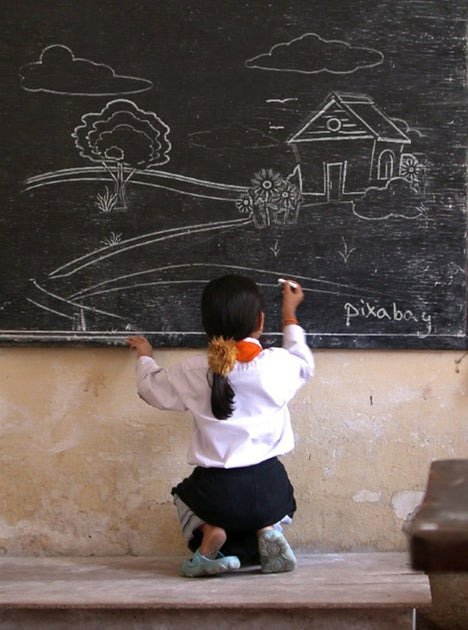How to be a Student
This article is not to lead you to believe there is simply one way to be as a student. It is more of a means of highlighting my mistakes over nearly 4 decades of learning. I have been a horrible student at times, essentially inhibiting myself from learning anything new and running around in egocentric circles believing all I knew was all I needed to know. A safe existence which has its (limited) merits. However, I don’t believe I was inclined to necessarily behave that way – I feel I was coerced. I had lost faith in my own curiosity and spirit of exploration and creativity. (See my previous post on Experiential Learning) I feel that limiting preconceptions are not inherent in how we learn, but are learned through the responses and reactions witnessed by our primary caregivers and educators. How well we support and encourage this inherent curiosity and will to learn (or don’t actively diminish it; spoken in the negative) affects the student’s enthusiasm for learning, and sets them on a trajectory for creative, participatory, active knowledge seeking.
I have had the great fortune to have met some tremendous teachers in my life, thus far. Each one of them made me uncomfortable at some point, and brought out a desire to rebel and separate myself. Each one of them treated me with equanimity, saw my immediate needs (I believe), did not placate me, and did not act in a disparaging way (however scorned I may have felt). In each case, it took my ability to see the humor in my ways (re: pride, foolishness), a sense of the “lesson” they were attempting to impart, and a humility to go forward with an openness to engage in the way that they were requiring of me. And in each of these circumstances which I can recall, I was clearly enabling myself towards growth at the deepest level. I was not engaged in self-chastisement, self-abuse, or with a desire to please someone else – it was clearly safe to engage and they had my back so long as I brought the courage. That, to me, is the mark of a true “teacher”. One who can reflect back to you your inner strengths, and most importantly that which stands between you and your actualization of your greatest self (your purpose, your sacred skills, the expression of your inner truth). To engage with another at this level has been some of the highest experiences in human form that I have known.
There are a number of behaviors I have continually engaged in which have predictably inhibited my ability to learn what was there for me to learn. One of the primary blockades to learning, whether one-on-one or in a group environment, is projecting what you know onto the given lesson/situation instead of being receptive to what is being shared. There’s a variety of common mistakes students make when engaged in learning which will reliably diminish their experience and, very likely, the experience of everyone around them. Here goes:
1) projecting what you know onto the lesson
2) asking questions before the presentation has been completed (or before they have been invited)
3) anticipating material and asking questions before the instructor arrives there
4) when asking “questions” starting with what you know, and then essentially asking the teacher to either validate or disprove what you think you know
5) only hearing what’s being said through the filter of “what you think you know”
If there’s one rule of thumb I have come to in my experiences with traditional student-teacher relationships it’s Receptivity. If I can keep my cup empty, there is always space for the teacher to fill it up again (and amazing teachers will keep filling it as soon as you can empty it – they wait for you). Much of what I listed above alludes to Receptivity. Let’s look at it more succinctly: A teacher is presenting new material and you begin anticipating what might be said based upon some bit of familiar material introduced. As you go on formulating your feeble hypothesis, the teacher has already introduced something new which you casually missed while tallying up your knowledge. Certainly you will be the first to note how astute you are and present to the teacher your “question” as they pause to take a breath. In the meantime, the remainder of the students are practicing receptivity (to their best ability) in quiet. As you hijack the discussion with your poignant question you have already derailed the group and made yourself the center of attention. Now the well-equipped, and patient, teacher must take a detour from where she was headed and acquiesce to your insistent pleading to be noticed – all at the expense of the whole group’s time, attention, and well-intentioned efforts to listen and be receptive. It’s a relatively minor event, which undoubtably occurs in nearly every classroom, often countless times per hour of class, but is it necessary? Is it serving the group? Does it facilitate learning the content which the teacher has been hired/sought out to present? No.
If one has committed to learning what someone has to offer, can they possibly expect to know what they are to receive? and in what way the knowledge may be transmitted?
One significant problem I find present in our culture is a general expectation to have what we want right now, particularly because we paid for it – and, we believe, deservedly so. As we believe we are owed something for our expenditure, it is there for our taking. Little regard is given to a respectful observance of those who’ve come before us stewarding the ground from which we will grow, providing us the opportunity to feel empowered in the hard-earned knowledge they are passing along. Instead we commence to ‘pick their brains’ and extract what precious resources our curious minds care to compile in the construction of our self-centered universe. A naive undertaking. Instead, if we gracefully acknowledged our seniors it would only serve to make our paths more easily passable, expanding and enriching the journey. One never knows what opportunities may await until the proper space has been given.


